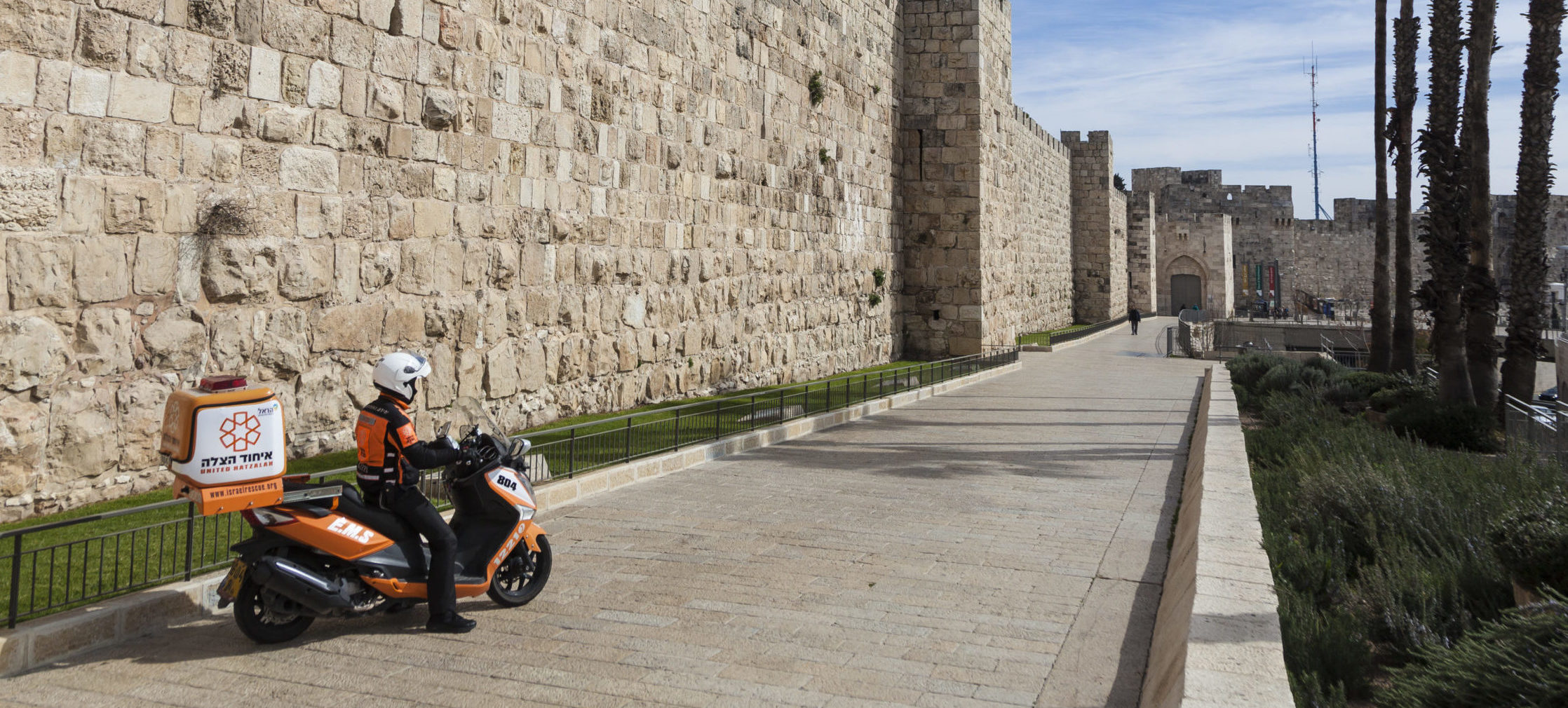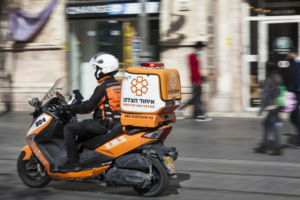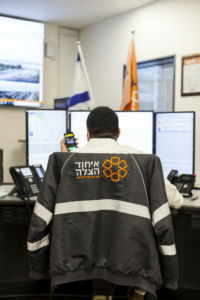
In Israel, lives are lost every day due to the delay between calling for emergency help and the arrival of that help.
United Hatzalah has set out to address this problem through a network of trained volunteers who respond to emergencies on medically-equipped motorcycles called “ambucycles” and provide care until an ambulance arrives. The high-tech, compact-sized ambucycles enable volunteers to reach a patient in an average time of less than three minutes, saving critical time and lives.
Eli Beer founded United Hatzalah in 2006 after working on an ambulance as an emergency medical technician (EMT) and realizing the time barriers that stood in the way of saving lives. After heavy traffic, congestion, and distance prevented his ambulance from saving a young boy, Eli knew there had to be a better solution. Eli devoted his energy to developing a grassroots, community-driven approach, with he and his neighbors responding to emergencies on-foot using beepers, before later advancing to its use of ambucycles and GPS technology.
 Now, United Hatzalah has a diverse volunteer team. Community members of ranging professions and backgrounds who are interested in saving lives can take a course and a comprehensive exam to qualify as EMTs.
Now, United Hatzalah has a diverse volunteer team. Community members of ranging professions and backgrounds who are interested in saving lives can take a course and a comprehensive exam to qualify as EMTs.
Dov Rubin, who works as a food importer and is a father of seven, has been volunteering as an EMT. He was inspired to join United Hatzalah after an experience of feeling helpless as he waited for an ambulance to respond to a neighbor in need.
“When my friend and I finished our training to become the first EMTs in our community, the entire community breathed a sigh of relief. People saw how effective it was to have someone from the community be able to provide medical support and treatment, which led others to become certified as well,” Dov says.
Dov recounted a recent emergency, in which a newborn baby was choking when he arrived at the scene in less than one minute. “The chance that this organization gives us to save lives, in terms of equipment, knowledge, and ability, is simply amazing,” said Dov after the incident.
 Today, United Hatzalah’s 6,000 volunteers are answering an average of 1,800 emergency calls each day. With support from Helmsley, United Hatzalah expanded and updated their command and dispatch center, modernized its mobile communications equipment, and outfitted its volunteers with automated external defibrillators. Originally designed to manage up to 90,000 calls per year, United Hatzalah’s new, state-of-the-art Helmsley Emergency Lifesaving National Dispatch Center is now able to respond to as many as 657,000 calls per year, with a United Hatzalah volunteer responding in three minutes or less.
Today, United Hatzalah’s 6,000 volunteers are answering an average of 1,800 emergency calls each day. With support from Helmsley, United Hatzalah expanded and updated their command and dispatch center, modernized its mobile communications equipment, and outfitted its volunteers with automated external defibrillators. Originally designed to manage up to 90,000 calls per year, United Hatzalah’s new, state-of-the-art Helmsley Emergency Lifesaving National Dispatch Center is now able to respond to as many as 657,000 calls per year, with a United Hatzalah volunteer responding in three minutes or less.
The Israeli organization’s unique model is expanding internationally. United Hatzalah Panama was the first international adaptation, and it has proven to be successful since launching there in 2013. A pilot program has also successfully launched in Jersey City, New Jersey, the first in the United States to implement the life-saving model.
As Israel continues to be a leader in changing the way we solve health-related challenges, United Hatzalah is advancing that impact by improving emergency response innovations in Israel and beyond.